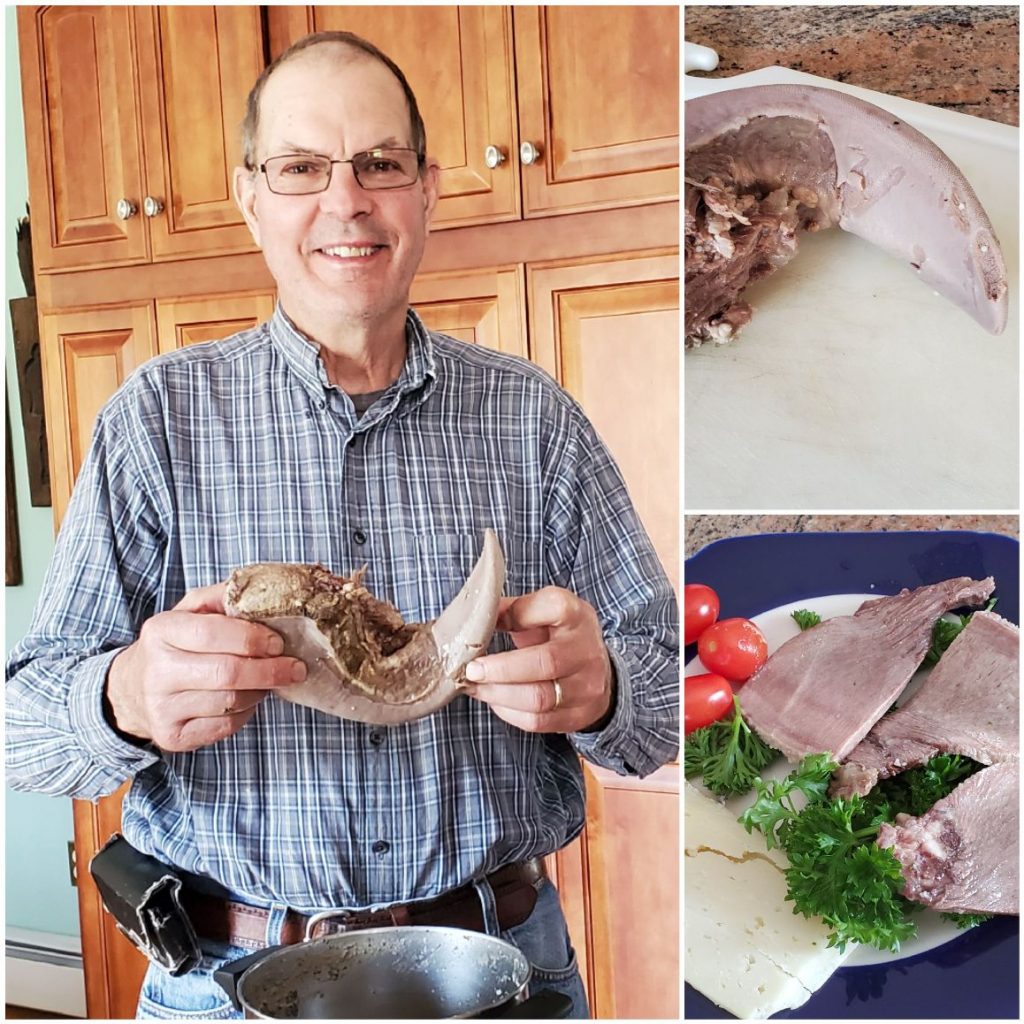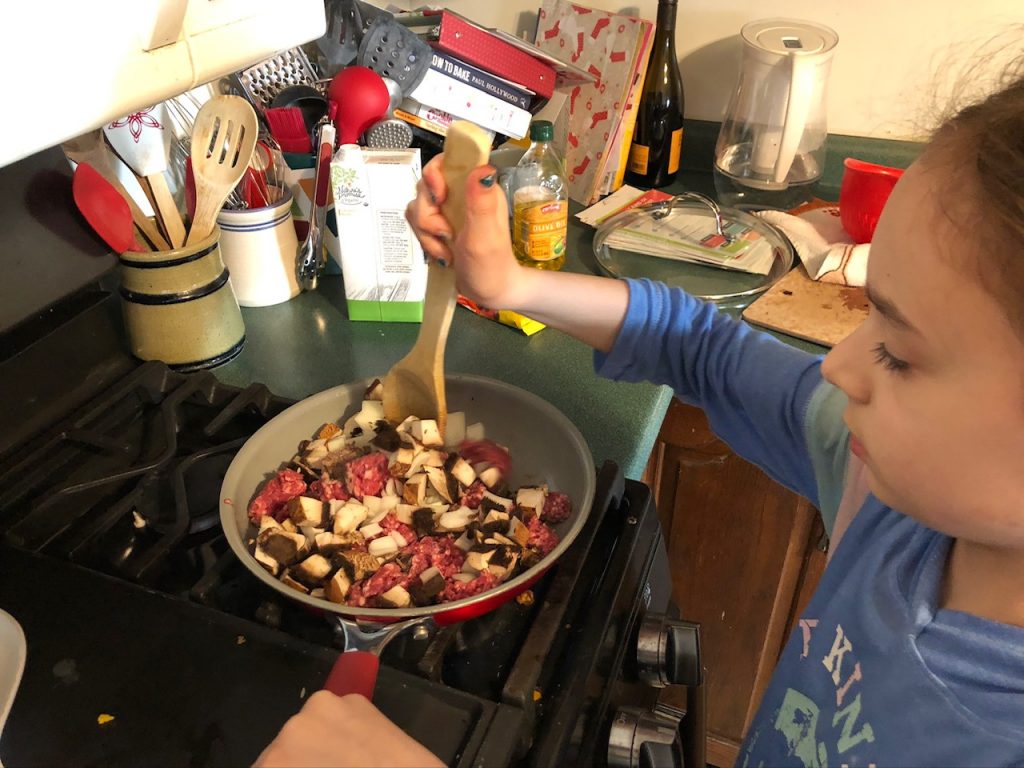by Sue Conrad Howes, Mosaic Communication Associate

Jim King of Plains congregation (Lansdale, PA) wondered what he could do to pass the time during COVID-19. He began looking in his pantry. Suddenly, he had an idea that he wanted to share with his congregation. Each week, he would take an ingredient from his pantry or freezer that had been in there too long. King would make something with it and send pictures of it via email. “I am going to ask you to respond with what occasions, memories, or emotions come to mind when you think of eating this food,” explained King, in his first email.
King’s first dish was mince pie, made from meat in his freezer marked, “Deer, 2017.”
In his email, King shared not only pie photos, but also memories. “It was my Grandmother Longacre who made the mince pies. I only remember having them at Christmas when about 40 of us showed up at the farm.”
He closed the email, asking, “What does mince pie take you back to BC [Before Coronavirus]? Stay Home, Eat well.”
Soon other church members began to share their memories of mince pies and other family recipes, bringing laughter and reflective thought to somewhat lonely days during the pandemic.
The next week, King’s recipe was pickled tongue.
“Gratitude and thankfulness seem to be in short supply these days,” wrote King in his email. “Meanwhile, we just might be spending more time communicating back and forth on the phone, across the yard, or on Zoom.”

“This week’s cooking project might be a good reminder to evaluate the quality of our conversation,” explained King. “Proverbs 12:18 reminds us, ‘Reckless words pierce like a sword, but the tongue of the wise brings healing.’”
King’s storytelling is as flavorful as his dishes, as his back stories always whet our appetite for more.
The beef tongue was obtained from his brother’s cattle farm. “When I show up there, I am invited to take the beef parts that don’t sell easily, such as the tongue, heart and tail,” shared King.
Although King’s love for pickled tongue may not be shared by everyone, he offered special delivery to anyone wanting a taste. “For the rest of you who have an aversion to pickled tongue or have memories of how you ate it BC [Before Coronavirus],” encouraged King, “please let me know.”
While King is glad to have some extra room now in his freezer, his purpose is less about food and more to do with community. Numerous email responses share memories, stories, and new recipes.
Rachel Mateti shared a recipe for baked oatmeal, attempting to use pantry staples to prolong grocery trips. As her family ate baked oatmeal together one morning, Mateti reflected on the change of pace with a pandemic. “An added bonus was sitting down at the table with the family as they woke up and sharing the morning and thanking God for these good moments,” she wrote.
The community is not just for adults. Anju, a 9-year old, joined in the conversation. “I really like cooking and baking because some of the stuff that I make, I wouldn’t try if I hadn’t cooked or baked it myself,” she shared. Enjoying the conversations, she added, “I like to bake strawberry shortcake and raspberry lemonade bars. What did you like to cook when you were 8 or 9?”
King knows not everyone likes interacting via email. Since the real purpose of the weekly COVID-19 cooking email is to build community, King says, “If the computer annoys you, just give me a call.”
The opinions expressed in articles posted on Mosaic’s website are those of the author and may not reflect the official policy of Mosaic Conference. Mosaic is a large conference, crossing ethnicities, geographies, generations, theologies, and politics. Each person can only speak for themselves; no one can represent “the conference.” May God give us the grace to hear what the Spirit is speaking to us through people with whom we disagree and the humility and courage to love one another even when those disagreements can’t be bridged.
